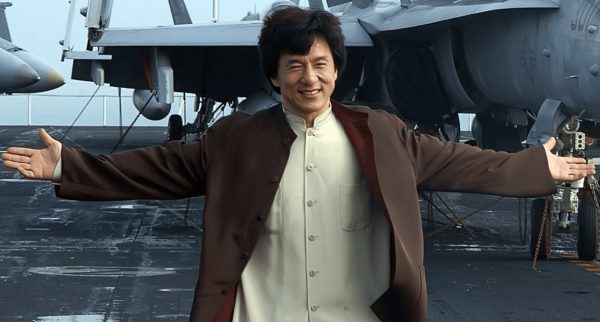Karate Kid: Legends – an echo of the past or the start of something new?
Karate Kid: Legends is the latest chapter of the long-running and beloved Karate Kid franchise, one which bravely aims to unite the charm of the original and the emotional depth of the 2010 remake with the comedic flair of Cobra Kai. The franchise’s newest addition unmistakably wears its legacy, from formulaic training montages and predictable fight scenes, but rather than pushing forward, Legends retreats into the safety net of the franchise’s well-worn blueprint.
If you’ve seen any of the old Karate Kid films, the plot unfolds exactly as expected, with the protagonist, this time Li Fong, making the journey away from home to start a new life with his mother in New York. Every trope is then ticked off as if the film is scared to branch out from the legacy’s trusted formula: Li Fong meets Mia, runs afoul of the school bully, Conor (who, of course, also likes Mia), and finds himself swept into a well-trodden cycle of humiliation and discipline which culminates in the classic karate showdown. Just as Daniel LaRusso and Dre Parker before him, Li Fong follows this familiar route, but this time, the pacing feels far too rushed. While the success of the previous films hinged on their ability to build genuine emotional stakes through gradual character development and the karate training arc, the fatal flaw which leads to the film’s emotional superficiality is that Li Fong already knows Kung Fu. As such, the training sequences feel truncated and surface-level rather than transformative.
With such a hollow antagonist, the central conflict in Legends lacks the moral tension which gave the franchise its depth
That absence of depth ripples through much of the film, seeping into the thinly written character of O’Shea, Conor’s sensei. Where the original pitted the disciplined and spiritual Miyagi-Do against ‘no mercy’ Cobra Kai, not simply in the dojo but in their worldviews, the dynamic of Legends is disjointed. John Kreese and Terry Silver were operatic in their menace and turned Cobra Kai into a belief system, and by contrast, O’Shea feels more like a placeholder. He offers a vague gruffness and some recycled lines about winning, but simply provides little in the way of real menace or motivation unlike his predecessors. With such a hollow antagonist, the central conflict in Legends lacks the moral tension which gave the franchise its depth: there’s no ideological clash and Conor is simply a kid with a chip on his shoulder being guided by a sensei with little to say.
This is not to say that where Legends spends its time it does not succeed. Much of the film’s exposition focuses on the connection between Li Fong and Mia, one which seems genuine and provides a necessary emotional anchor. Their relationship humanises Li Fong away from the underdog trope and makes him a surprisingly compelling protagonist. The film does well to develop his character by underpinning his fighting life against the backdrop of his brother’s trauma, making each confrontation feel emotionally charged rather than just physical.
There is, within Legends, a glimpse of a more successful film. For a brief stretch, it flirts with originality through inversion: rather than simply training under a wise sensei, Li Fong becomes one. He mentors Mia’s Father, Victor, a former boxer who owes debt, in scenes that suggest a thoughtful departure from the franchise’s rigid conventions. Not only does this create a unique student-sensei dynamic, but alters Li Fong’s relationship with Mia, who is initially worried that Li is training her Father. Thus, when Victor’s training culminates in a rigged underground match, one which ends in a brutal, illegal elbow and lands him in hospital, Li Fong is forced to confront the emotional consequences of teaching. Within the Karate Kid franchise, fighting has always been a site of responsibility, and Legends brings a fresh take on that motif.
The film wastes the potential of what becomes a minor sub-plot in favour of reuniting legacy characters, Mr. Han and Daniel LaRusso, whose cameos seem more designed to stir nostalgia than to serve the plot
Yet, just as this thread of reinvention begins to develop, the film retreats and is eclipsed by nostalgia. The fallout of Victor’s injury is rushed and the narrative drifts back into the familiar, as Li Fong decides to fight in a karate tournament in order to fund Victor’s business. The film wastes the potential of what becomes a minor sub-plot in favour of reuniting legacy characters, Mr. Han and Daniel LaRusso, whose cameos seem more designed to stir nostalgia than to serve the plot. Their inclusions are fun and sentimental, and Jackie Chan is particularly hilarious to watch, but their roles flatten into comforting echoes of the past.
Ultimately, Legends is a fun watch if you’re a fan of the Karate Kid franchise, but as a film, fails to accomplish the emotional gravity of its predecessors. What remains is a film that occasionally charms, but clings onto its legacy a little too much.

Comments